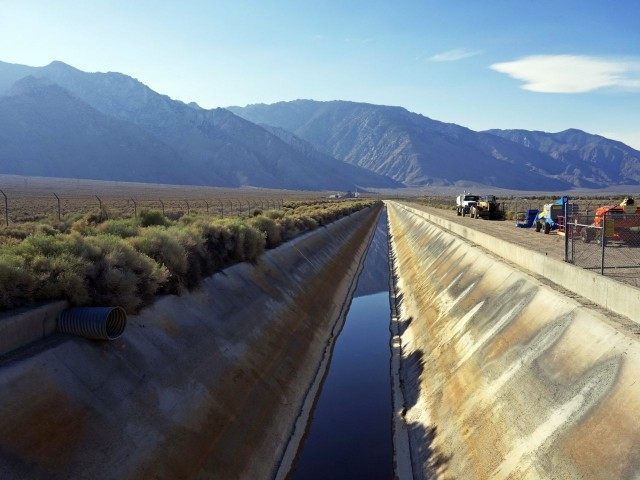Although polls reveal that most Californians now want to repurpose “high-speed rail” funding for drought relief, some farmers in the area are concerned that the initiative could actually make their lives worse.
California’s 76,400 farms and ranches produce over an eighth of all U.S. agricultural production. The state yields a third of America’s vegetables and 70 percent of its rice. Despite the 5-year drought that caused 560,000 acres to lie fallow last year, the state’s “ag” economy still had $54 billion in sales and exported $21.59 billion of meat, fruit, vegetables and grain in 2014.
Breitbart News has reported extensively that most Californians now believe that the “High-Speed Rail Authority” has become a boondoggle. The rail authority has not issued about $9.95 billion in municipal bonds approved by voters as Proposition_1A in 2008. All of the bullet train start-up cost so far has been funded from $3.2 billion in federal transportation and stimulus funds, plus $750 million in cap-and-trade money from the state’s greenhouse gas-reduction program
Sensing an opportunity to pass an initiative to repurpose the bonds, Republican State Sen. Bob Huff of San Dimas and the Republican State Board of Equalization member George Runner formed the “California Water Alliance” and talked a group of San Joaquin Valley vegetable farmers into raising $1.2 million to write the initiative and collect the 585,407 valid signatures from registered California voters by April 26 to qualify the proposition for the November ballot.
With a stated goal of building shovel-ready above ground water storage at Sites Reservoir in Colusa County and Temperance Flat Reservoir on the San Joaquin River, and raising the height of Shasta Dam near Redding and San Luis Dam near Los Banos, the entire ag community at first unified behind the “California Water Alliance” effort.
Executive Director Aubrey Bettencourt, told the San Jose Mercury, “People have softened on high-speed rail because they have found out it is not what they were sold.” She added, “This is about getting our priorities straight.”
But once Central Valley farmers learned that the new initiative would also repurpose $2.7 billion in above-ground water storage monies from the Proposition 1 water bond approved in 2014, some held a news conference on March 10 to blast the initiative as a “Trojan horse.”
Critics of the California Water Alliance complain that it took one of the worst droughts in California history to get the fast-track approval for four new reservoirs under Proposition 1. They see any effort to repurpose the money as risking another multi-year delay for any drought mitigation.
Assemblyman Jim Gallagher (R-Plumas Lake) warned that if the California Water Alliance is successful in passing a new initiative, “The results will be that these projects will be delayed, and we can’t afford to have that happen.”
Rice farmers in Northern California’s Sacramento Valley are also concerned about amending the state constitution to make domestic water use the highest priority, agricultural irrigation the second-highest priority, and environmental restoration of fish and wildlife populations the third highest “need.”
With environmental needs currently the highest constitutional “need,” rice farmers are able to flood 200,000 acres of land each year, even in a drought, to provide watershed for ducks, geese and other migrating birds along the Pacific Flyway. The birds also save rice farmers millions of dollars by eating the leftover straw after the rice harvest, according to the California Rice Industry Association. Any change in “need” could have a huge negative impact on rice farmers.
For more information of the initiative, click on https://cawater4all.com for the yes campaign, and www.stopthewatergrab.com for the no campaign.

COMMENTS
Please let us know if you're having issues with commenting.